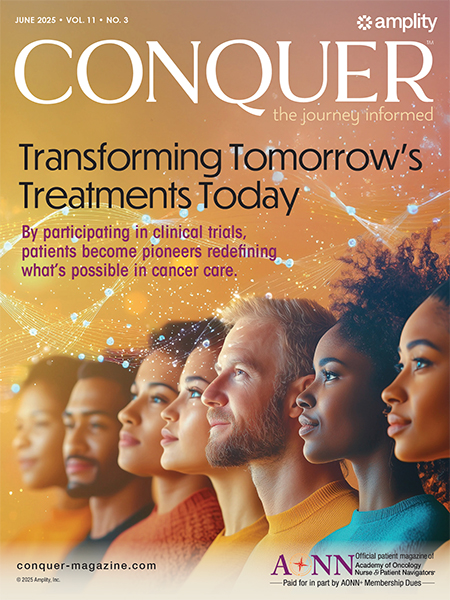Navigation & Survivorship News
Revisiting “Healthy Lifestyle Choices”: Are You Reinforcing Stigma?
We need to use caution when we tell people to make healthy lifestyle choices, as the systems may not be set up to make the healthy option accessible and affordable.
Providing Direction and Support to Family Caregivers
Caring for a patient with cancer can be a daunting task for family caregivers. Navigators need to help ease the burdens by providing needed information and education to make the journey doable for both the patient and the caregiver.
New Geriatric Toolkit for Navigators
Explore this resource to find answers to various types of geriatric populations and see a visual of where we are headed in 2060.
Recorded Webinars to Enhance Patient Navigation Services
The GW Cancer Center has a webinar series on professional development for oncology navigators.
The Growing and Impending Shortage of Oncology Professionals
The number of people diagnosed with cancer is steadily increasing while the shortage of oncology professionals is beginning to swell. What can we do?
May I Have Your Attention—Does Eating Asparagus Cause Breast Cancer to Spread?
Oncology navigators, like many other people, may be drawn to information that is novel and unusual. It is important that we know how to identify and share with patients only the reliable and trustworthy health information.
Policy, Systems, and Environmental Training Offers Tips to Improve Policies and Systems
The GW Cancer Center’s Online Academy offers a number of training and education opportunities for healthcare and public health professionals to help advance patient-centered care and evidence-based public health practice.
End-of-Life Communication Strategies for Oncology Professionals
End-of-life discussions can be difficult, but when carried out thoughtfully and repeatedly with the patient and their family caregivers, it can become one of the most fulfilling parts of a clinician’s work and success stories.
Patient Navigation Is a Solution to Improved Cancer Screening
The past 2 years of the pandemic highlighted the role of oncology patient navigation as a solution to improved cancer screening during challenging times.
Transforming Healthcare: A Guide to Best Practices in LGBTQIA+ Cultural Competency Training
This toolkit presents recommended standards and best practices for training healthcare providers and staff in LGBTQIA+ cultural competence.
Thank You to Our Corporate Sponsors and Alliance Partners!

Major Corporate Sponsor

Patron Corporate Sponsor

Patron Corporate Sponsor

Patron Corporate Sponsor

Industry Relations
Council Member

Industry Relations
Council Member

Industry Relations
Council Member

National Alliance Partner

National Alliance Partner

National Alliance Partner

National Alliance Partner

National Alliance Partner

National Alliance Partner
Privacy Notice | Terms of Use
© 2009- DBA AONN+ Academy of Oncology Nurse & Patient Navigators® | PO Box 357387, Gainesville, FL 32635-7387 |
AONN+ DBA AONN+ is a 501(c)(6) organization under federal tax guidelines. AONN+ Foundation for Learning, Inc. a 501(c)(3) organization under federal tax guidelines.
AONN+ Advantage, LLC, a wholly owned subsidiary of AONN+.


